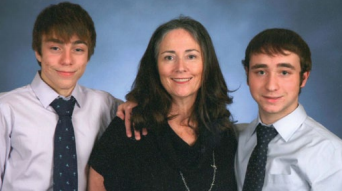By Micaela Presti
 A child is not born a bully. It is a learned behavior and adults need to make sure they are role modeling for the children of our communities the importance of respect, tolerance and empathy.
A child is not born a bully. It is a learned behavior and adults need to make sure they are role modeling for the children of our communities the importance of respect, tolerance and empathy.
In the book, Nurture Shock by Po Bronson and Ashlee Merriman, there is a chapter on race and tolerance. The authors point out that white parents, in particular, feel that because their child may live in a community that is racially diverse, their children accept the differences. Parents then don’t feel they need to talk about differences.
Nothing could be further from the truth. We need to talk about differences because children do notice that someone’s skin, sexual preference, etc. is different from theirs and they need to understand why.
It’s the same thing for bullying. It’s important to talk to your child about social cruelty. Ninety percent of children will not tell an adult they are being bullied. Most kids who are subject to one or two incidences of social cruelty are resilient and can work their way through it without the intervention of an adult. It is those children who are subject to true bullying that we need to be aware of and help figure out a resolution. We also need to realize that a child who bullies others needs as much intervention as the child who is bullied.
For parents seeking help—whether their children are bullied or are bullying—Not In Our School now offers a comprehensive new guide.
The Not In Our School Parent Guide: Preventing and Addressing Bullying and Intolerance is available free for parents.
The 14-page guide covers the following topics:
- Defining Bullying and Intolerance
- How to Know Your Child is Bullied
- How to Get Support from the School
- Taking Action for Change
Download the Parent Guide today.
Micaela Presti, parent and anti-bullying activist, co-authored the Not In Our School Parent Guide with Not In Our School Director Becki Cohn-Vargas.
Add new comment